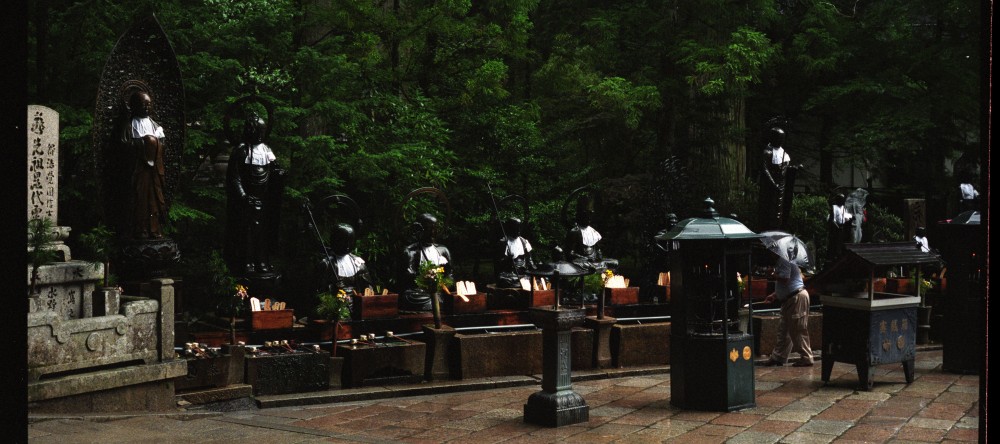The Institute of Buddhist Studies has published another title in its Contemporary Issues in Buddhist Studies series, available soon through the University of Hawai’i Press. The new volume in the series is Gil Fronsdal, Dawn of the Bodhisattva Path: The Early Perfection of Wisdom.
Forward, by Richard K. Payne
The representation of Buddhism continues to be informed by the intellectual and religious prejudices of the nineteenth century. The effect is described by Gil Fronsdal in Dawn of the Bodhisattva Path as the “bifurcation of Buddhism into faith vs. philosophy.” The story of this bifurcation is by now well, if not widely, known. It is not simply a division of Buddhism into two parts, but a reimagining of Buddhism in terms of two theological emphases in Christianity. These are both broad groupings of affiliated approaches to the understanding of religion. Roughly, this is the distinction between understandings of religion based in the emotions and those based in reason. Over the centuries of the development of Christian theology, these approaches have been increasingly defined in opposition to one another. This oppositional understanding today provides not only the basis for much popular discussion of religion but also has become naturalized to the degree that it also informs attempts to understand non-Christian traditions, including Buddhism. The Buddhist tradition had its own divisions that could be interpreted as analogous to the faith vs. philosophy distinction. The result of the confluence of these two scholastic tendencies is that Buddhism has come to be represented within a framework in which the faith vs. philosophy distinction is taken for granted—that is, simply presumed to be the most natural and obvious way to think about the religion (or any religion). Two forms of Buddhism have thus been imagined into existence within Western discourse on religion.
In this process, devotional forms of Buddhist practice have been devalued
to the point of being actively rejected as inauthentic. This has been the fate of Japanese Pure Land Buddhism, which many scholars and students have found at best only dubiously Buddhist. While perhaps less obvious, the incorporation of Buddhist thought into philosophy has largely led to the emergence of a similarly distorting picture. Buddhist thought has usually been treated as a colony, one whose resources can be employed for the benefit of philosophy, without reflection on the origin of the questions, problems, or philosophical categories that are rooted in the Western cultural tradition.
As Fronsdal notes in his introductory chapter, however, “It is unlikely that Indian Buddhists separated the devotional and philosophical dimensions of their religion in the same way that many modern scholars have done.” He seeks here to present a balanced understanding of the Perfection of Wisdom teachings as a meaningful whole, a representation that includes “its devotional elements, its relationship to buddhas of the past, present, and future, its relationship with texts and stories, the role of merit, the religious differentiations among its participants, the immediate and final religious goals for the bodhisattva practitioner, and the various normative religious practices within the movement.” In taking this approach, based on solid philological grounding, toward an understanding of the tradition that is integrated rather than fragmented according to preconceived oppositional categories of faith vs. philosophy, Dawn of the Bodhisattva Path serves as a paradigm for future research.
We are pleased to have the opportunity to make this work by a member of the IBS faculty available to a wider public. In discussing the possibility of its publication, an important consideration was the frequency with which the original 1998 dissertation, on which this book is based, has continued to be actively cited by scholars working in the field. Having already proven its worth in this way, we are confident that this presentation of Fronsdal’s work will be of continuing value for other scholars in the field as well.
I would like to thank Gil Fronsdal for agreeing to have this work published, and for his ongoing assistance in the production process. Thanks also to Marianne Dresser for copyediting and layout work, Kathleen Barber for indexing, and Arlene Kato for the cover design. As always, my personal thanks go to Brian Nagata for the guidance, support, and encouragement he has given me over the years. This work was supported by the Buddhist Churches of America’s Fraternal Benefit Association Legacy Endowment and BDK America, Inc. My thanks to the founders and leaders of both organizations for their generosity, and for the visionary qualities they have demonstrated by establishing these programs.

Thanka for letting us know. Where is it available from please, and any other publication details would be great. Thank you.